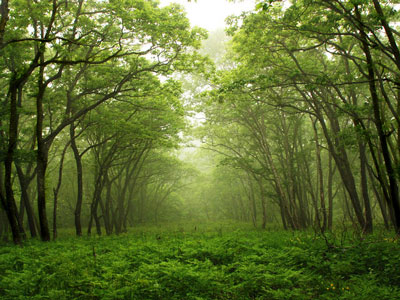砍伐森林会让世界变得更潮湿
来源:《Science》
作者:C. Woodward
时间:2014-12-03

据一项新的研究报道,将世界上湿地——如沼泽和湖泊——中的树木清除会让那些环境变得显著更湿。但研究人员说,这种现象在很大程度上未被人们所意识,因为大多数的有关人类对环境影响的研究不是设计成观察这种现象的。(养分载荷和流域侵蚀是最常报道的砍伐湿地森林所造成的影响。)
Craig Woodward及其同事如今显示,砍伐世界湿地森林的主要作用是每年降雨量上扬15%。研究人员应用一个地球与大气间水交换的详细模型、一个对全世界24万5000个湿地的荟萃分析以及来自澳大利亚和新西兰的化石记录显示,砍伐森林一直在制造新的湿地,并增加了已经存在数千年之久的湿地的水含量。
他们的结果表明,湿地保护及管理措施因为这一作用而需加以修订,而湿地森林再造--一个目前在世界许多地区计划实施的策略--可能会有意想不到的后果。
据研究人员披露,有时,9-12%的世界湿地森林被砍伐,其中包括由1971年Ramsar条约列为重要湿地中的20-40%。他们说,在那些地方,水产出量已经增加多达460毫米。(来源:生物360)
The hydrological legacy of deforestation on global wetlands.
Abstract Increased catchment erosion and nutrient loading are commonly recognized impacts of deforestation on global wetlands. In contrast, an increase in water availability in deforested catchments is well known in modern studies but is rarely considered when evaluating past human impacts. We used a Budyko water balance approach, a meta-analysis of global wetland response to deforestation, and paleoecological studies from Australasia to explore this issue. After complete deforestation, we demonstrated that water available to wetlands increases by up to 15% of annual precipitation. This can convert ephemeral swamps to permanent lakes or even create new wetlands. This effect is globally significant, with 9 to 12% of wetlands affected, including 20 to 40% of Ramsar wetlands, but is widely unrecognized because human impact studies rarely test for it.
原文链接:http://www.sciencemag.org/content/346/6211/844.full.pdf




